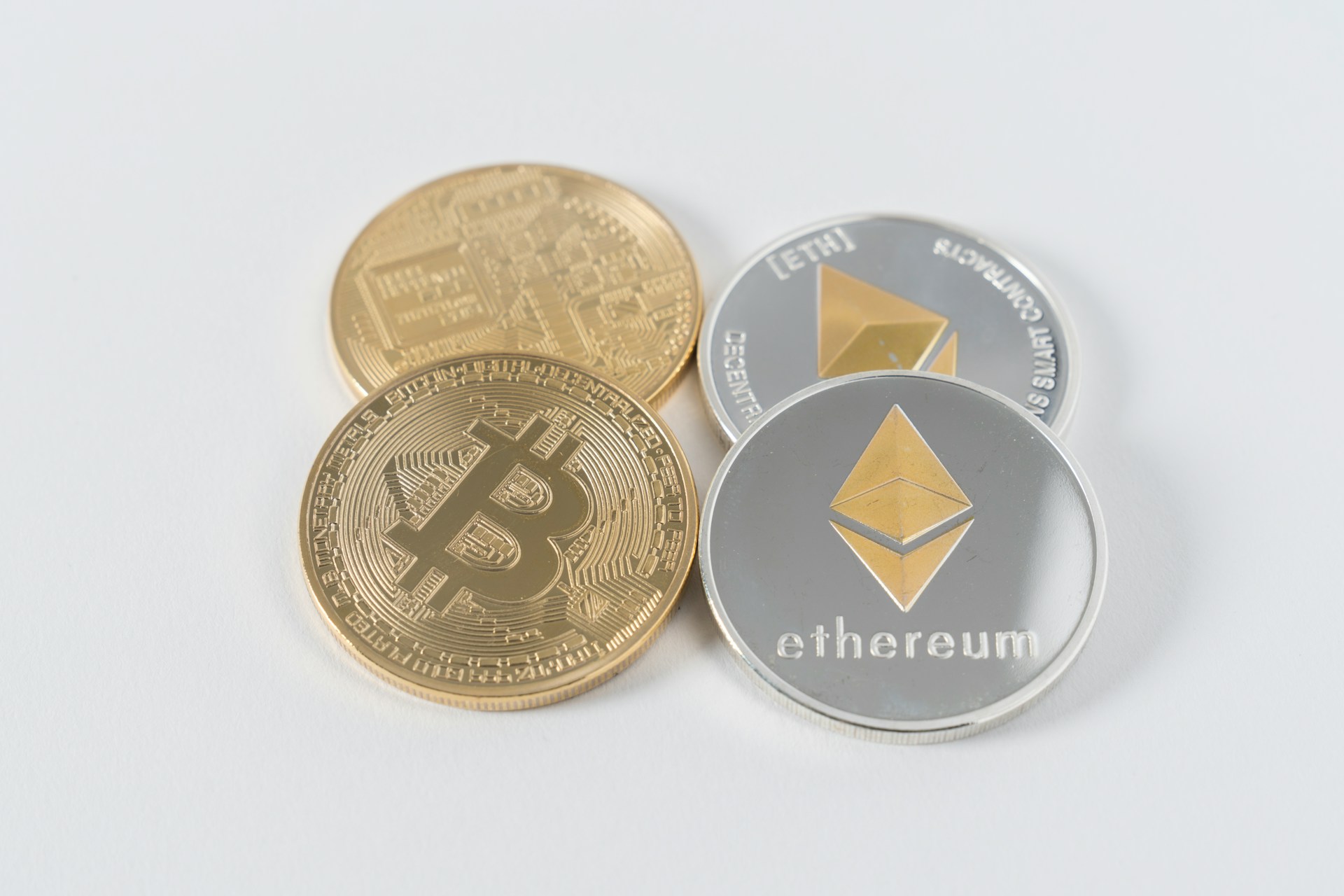The Transformation of Tether: Controversies and Influence on the Crypto Market
Tether, a key player in the crypto sector, introduced a groundbreaking concept—a stablecoin pegged to the US Dollar, mitigating volatility. Vital to the crypto market, stablecoins, like Tether, bridge traditional fiat and the dynamic crypto space, offering stability. This article delves into Tether’s evolution, exploring controversies that shaped its path. While navigating the crypto realm, […] The post The Transformation of Tether: Controversies and Influence on the Crypto Market appeared first on Entrepreneurship Life.


Tether, a key player in the crypto sector, introduced a groundbreaking concept—a stablecoin pegged to the US Dollar, mitigating volatility. Vital to the crypto market, stablecoins, like Tether, bridge traditional fiat and the dynamic crypto space, offering stability. This article delves into Tether’s evolution, exploring controversies that shaped its path. While navigating the crypto realm, individuals may find unique perspectives on digital assets through experiences like “Trade GPT 3.0 Plixi,” an online trading platform emphasizing a stabilizing force in the crypto landscape.
The Birth of Tether
Background on Tether’s Creation
Tether originated in 2014, initially named “Realcoin,” with the objective of merging the benefits of cryptocurrencies with the stability of traditional currencies. Brock Pierce, Craig Sellars, and Reeve Collins envisioned a digital asset that could maintain a steady value, providing users with a reliable means of exchange.
Tether’s Initial Vision and Objectives
Tether’s primary vision was to introduce a stablecoin that mirrored the value of the US Dollar, offering a dependable alternative to the volatile nature of other cryptocurrencies. This vision aimed to attract users seeking stability without completely detaching from the crypto space.
Early Adoption and Integration Into the Crypto Ecosystem
Tether gained swift adoption within the crypto community, becoming a popular choice for traders and investors seeking a stable value within the dynamic crypto market. Its integration into various exchanges and trading platforms marked the beginning of its influence on the broader digital asset landscape.
Tether’s Controversial Peg: USDT and USD Reserves
Tether’s Claim of Being Pegged 1:1 to the US Dollar
Tether’s fundamental premise rests on its claim of being pegged at a 1:1 ratio to the US Dollar. This pegging mechanism, theoretically ensuring a stable value, became a cornerstone of Tether’s appeal and contributed to its widespread use in the crypto trading environment.
Skepticism and Controversies Surrounding Tether’s USD Reserve Claims
Despite its claim to be fully backed by US Dollars held in reserve, Tether has faced persistent skepticism and controversies regarding the transparency and accuracy of its reserve holdings. Questions arose about the adequacy of the reserves to support the substantial circulating supply of USDT.
Impact of Controversies on Tether’s Reputation and the Broader Crypto Market
The controversies surrounding Tether’s peg and reserve claims have had a palpable impact on its reputation. The broader crypto market, intertwined with Tether’s stability, experienced fluctuations and uncertainties as market participants grappled with the validity of Tether’s underlying assets.
Legal and Regulatory Challenges
Overview of Legal Scrutiny Faced by Tether
Tether’s journey has not been without legal hurdles. Regulatory bodies have scrutinized its operations, raising concerns about compliance with existing financial regulations. Tether has faced investigations and legal challenges aimed at ensuring transparency and adherence to regulatory standards.
Investigations and Settlements with Regulatory Bodies
In response to regulatory pressure, Tether has undergone investigations and, in certain instances, reached settlements with regulatory bodies. These actions were intended to address concerns related to the legitimacy of Tether’s operations and its adherence to financial regulations.
Tether’s Efforts to Address Regulatory Concerns and Enhance Transparency
Acknowledging the need to navigate the complex regulatory landscape, Tether has undertaken initiatives to enhance transparency and compliance. These efforts aim to foster trust among users, regulators, and market participants, mitigating legal challenges and ensuring a more stable operating environment.
Tether’s Role in Crypto Trading
Tether as a Popular Trading Pair
Tether’s stable value and widespread availability on crypto exchanges have positioned it as a popular trading pair. Traders often use USDT as a safe haven during market volatility, swiftly converting to Tether to shield their portfolios from the fluctuations inherent in other cryptocurrencies.
Influence on Price Stability in Crypto Markets
The prominence of Tether in crypto trading has had a notable impact on market dynamics. Its stable value acts as a reference point, influencing the pricing of other cryptocurrencies. This influence, while stabilizing, has also sparked debates about the potential centralization of power within the crypto market.
Criticisms and Concerns Regarding Tether’s Impact on Market Dynamics
Tether’s influence draws criticism for potential market manipulation and concentrated power, raising concerns about systemic risks in the broader crypto market.
Alternatives to Tether: Rise of New Stablecoins
Introduction to Other Stablecoins in the Market
The controversies surrounding Tether have prompted the exploration and adoption of alternative stablecoins. New players in the stablecoin landscape aim to provide stability with enhanced transparency and improved mechanisms for maintaining a pegged value.
Factors Influencing the Adoption of Alternative Stablecoins
Seeking alternatives, market participants prioritize factors like transparency, regulatory adherence, and peg mechanism reliability. The surge in stablecoins echoes a demand for stability and enhanced accountability in the crypto market.
Competition and Challenges for Tether in the Stablecoin Landscape
As alternative stablecoins rise, Tether faces growing competition. Maintaining dominance demands efforts to address controversies, boost transparency, and align with market shifts.
The Future of Tether
Tether’s Evolving Role in the Crypto Ecosystem
Tether evolves amid crypto dynamics, refining its role for market stability while addressing challenges, regulatory expectations, and market demands.
Potential Developments and Improvements in Tether’s Model
Tether’s future relevance may hinge on adopting enhanced transparency, tech advancements, and collaborative measures to address community and regulatory concerns.
Market Outlook and Predictions Regarding Tether’s Future Impact
Forecasting Tether’s impact hinges on navigating controversies, adapting to regulations, and ensuring stability, crucial for its influence on crypto.
Conclusion
In conclusion, Tether’s trajectory, marked by evolution, controversies, and adaptation, has significantly influenced its position within the crypto ecosystem. Despite facing challenges, Tether stands as a formidable player, serving a pivotal role as a stablecoin and widely used trading pair, providing stability in a volatile market. Beyond its individual journey, the controversies and challenges surrounding Tether have sparked reflections on the broader stability and regulatory landscape within the crypto space. These considerations contribute to ongoing discussions and decisions that will shape the industry’s future, highlighting the enduring impact of Tether’s evolution on the wider cryptocurrency ecosystem.
The post The Transformation of Tether: Controversies and Influence on the Crypto Market appeared first on Entrepreneurship Life.














